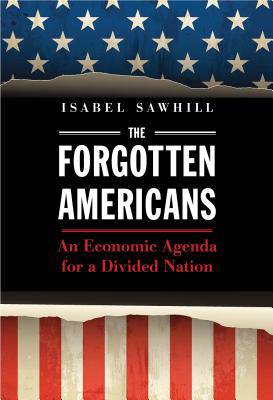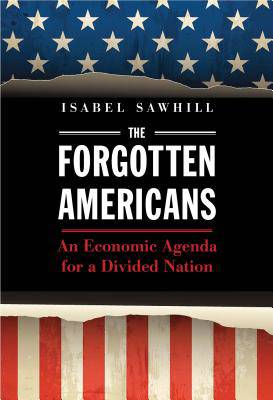
- Afhalen na 1 uur in een winkel met voorraad
- Gratis thuislevering in België vanaf € 30
- Ruim aanbod met 7 miljoen producten
- Afhalen na 1 uur in een winkel met voorraad
- Gratis thuislevering in België vanaf € 30
- Ruim aanbod met 7 miljoen producten
Zoeken
€ 31,45
+ 62 punten
Omschrijving
A sobering account of a disenfranchised American working class and important policy solutions to the nation's economic inequalities One of the country's leading scholars on economics and social policy, Isabel Sawhill addresses the enormous divisions in American society--economic, cultural, and political--and what might be done to bridge them. Widening inequality and the loss of jobs to trade and technology has left a significant portion of the American workforce disenfranchised and skeptical of governments and corporations alike. And yet both have a role to play in improving the country for all. Sawhill argues for a policy agenda based on mainstream values, such as family, education, and work. Although many have lost faith in government programs designed to help them, there are still trusted institutions on both the local and the federal level that can deliver better job opportunities and higher wages to those who have been left behind. At the same time, the private sector needs to reexamine how it trains and rewards employees. This book provides a clear-headed and middle-way path to a better-functioning society in which personal responsibility is honored and inclusive capitalism and more broadly shared growth are once more the norm.
Specificaties
Betrokkenen
- Auteur(s):
- Uitgeverij:
Inhoud
- Aantal bladzijden:
- 272
- Taal:
- Engels
Eigenschappen
- Productcode (EAN):
- 9780300230369
- Verschijningsdatum:
- 25/09/2018
- Uitvoering:
- Hardcover
- Formaat:
- Genaaid
- Afmetingen:
- 163 mm x 241 mm
- Gewicht:
- 544 g

Alleen bij Standaard Boekhandel
+ 62 punten op je klantenkaart van Standaard Boekhandel
Beoordelingen
We publiceren alleen reviews die voldoen aan de voorwaarden voor reviews. Bekijk onze voorwaarden voor reviews.











